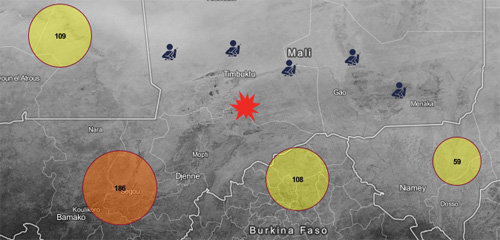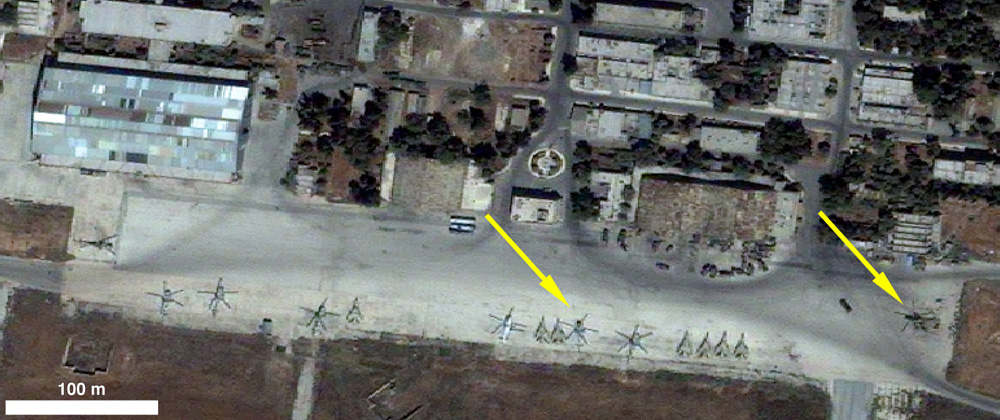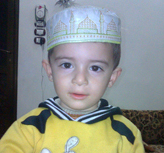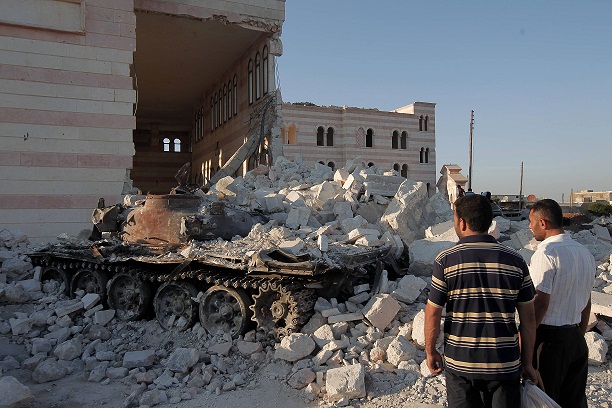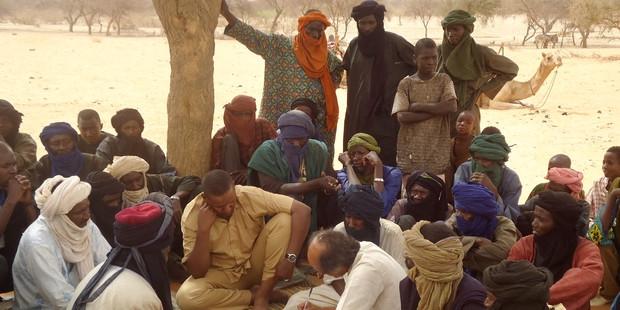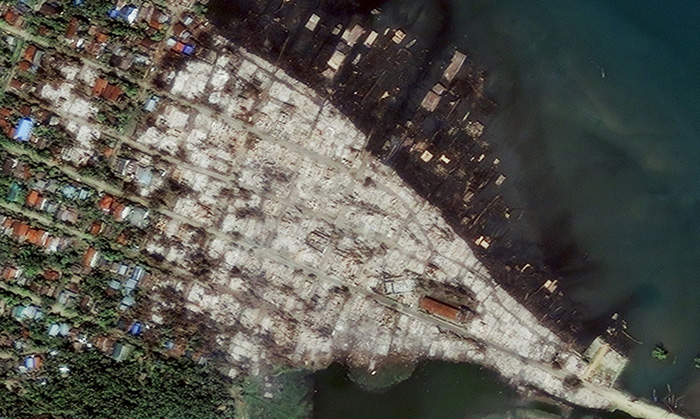
Hundreds of homes were destroyed in the city of Kyaukphyu, Rakhine state. This Digital Globe satellite image from October 25th captures the aftermath. (c) DigitalGlobe 2012
In the Rakhine state (also called “Arakan” by some) of Myanmar, the unfortunate evolution of discrimination, unequal application of the law, and forced displacement into violence and humanitarian crisis has come to bear. Since June, fits of violence between Buddhist and Muslim Rakhine, and Muslim Rohingya communities have likely left tens of thousands displaced and scores dead.
In the most recent incident of ethnic clashes, thousands of Rohingya muslim, but also Rakhine Buddhist, homes have reportedly been burned down. Part of the destruction was captured by a satellite image (courtesy of Digital Globe): The image of Kyaukphyu from October 25 shows a cindery scar on the face of the earth where hundreds of homes used to be (see the area before the destruction here). SEE THE REST OF THIS POST
